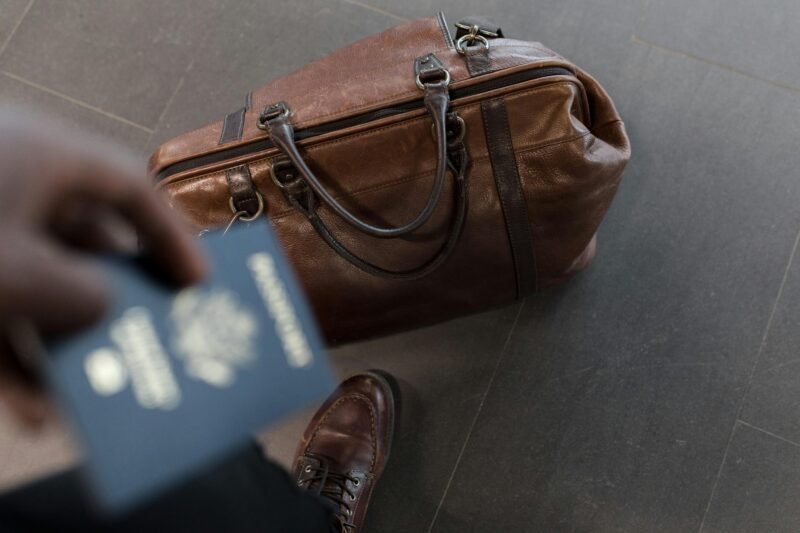Opening a Swiss bank account has long been associated with financial security, discretion, and global flexibility. Whether you’re an international investor, an entrepreneur seeking stability, or simply someone looking to diversify your assets, Switzerland’s banking system offers a compelling mix of tradition, strength, and modern financial services. In this guide, we’ll walk you through the key benefits of having a Swiss bank account, what you’ll need to open one, and the exact steps to get started—demystifying a process that’s often seen as exclusive or complex.
Swiss Bank Account Benefits
Having a Swiss bank account is often associated with privacy, security, and international banking benefits. Here are the main advantages:
Safety
First, Swiss banks are known for their stability and strong financial system, making them an attractive choice for those looking to safeguard their wealth, especially in times of political or economic uncertainty elsewhere.
Privacy
Second, there’s a high level of privacy and discretion. While banking secrecy laws in Switzerland have become more transparent due to international regulations, Swiss banks still maintain a reputation for protecting client information—especially in terms of general discretion and professionalism.
Multi Currency
Third, Swiss bank accounts often provide multi-currency options, which is useful for international clients who want to hold funds in different currencies to hedge against exchange rate risks or conduct business globally.
Wealth Management
Fourth, clients benefit from high-quality wealth management services. Swiss banks are experienced in managing large portfolios and offering tailored investment solutions, which makes them appealing to high-net-worth individuals.
Lastly, Switzerland has a strong legal framework and political neutrality, contributing to the overall safety of deposited assets.
Requirements
Here are some of the basic requirements for opening a bank account in switzerland.
Identity Check
First, you need to prove your identity. This usually involves providing a valid passport or national ID card, and in many cases, a second form of identification such as a utility bill or bank statement to verify your address.
Proof of Source of Funds
Second, most Swiss banks require a proof of origin of funds. This means you must explain and document where your money is coming from—whether it’s from employment, business activity, inheritance, or investments. This is to comply with anti-money laundering laws.
Personal Background Check
Third, you’ll typically have to provide personal and financial background information, including your occupation, source of wealth, and intended use of the account. Some banks may request a CV or professional profile, especially for larger accounts.
Minimum Deposit
Fourth, there may be a minimum deposit requirement, depending on the bank and type of account. For private banking services, this can range from CHF 100,000 to several million. However, some banks offer basic accounts with lower or no minimums.

Tax Residency Disclosure
Fifth, due to international tax regulations like FATCA (for U.S. citizens) or the OECD Common Reporting Standard, you’ll need to disclose your tax residency and possibly sign additional forms. U.S. citizens in particular face stricter scrutiny and fewer banking options.
Finally, if you’re opening the account remotely (without visiting Switzerland), be prepared for a more rigorous compliance and verification process, which might include notarized documents or a video identification process.
Step By Step Guide
Here’s a clear, step-by-step guide on how to open a Swiss bank account, especially as a non-resident:
Step 1: Define the Purpose of the Account
Before contacting any bank, clarify why you want the account: personal savings, asset protection, investment, business transactions, etc. This helps determine the type of account (personal, corporate, investment) and which bank suits you best.
Step 2: Choose the Right Swiss Bank
Research banks that align with your goals. Major banks like UBS, Credit Suisse, and Julius Baer have international services, while smaller private banks often offer tailored wealth management. Check their requirements, minimum deposits, fees, and whether they accept clients from your country of residence.
Step 3: Contact the Bank or a Representative
Reach out to the bank directly or through a representative (law firm, financial advisor, or asset manager). Most banks have English-speaking staff and international desks. You can usually start the process online or via email.
Step 4: Prepare the Required Documentation
You’ll typically need the following documents:
A valid passport (or ID if you’re Swiss/EU)
Proof of address (utility bill, bank statement, etc.)
Proof of income or source of funds (salary slips, business documents, investment records, inheritance papers)
Tax identification number and country of tax residence
Possibly a CV or professional profile
Signed bank forms and declarations (e.g. FATCA, CRS)
Documents may need to be notarized or certified, especially for remote applications.

Step 5: Compliance and Due Diligence Check
The bank will conduct a thorough background check to ensure compliance with anti-money laundering (AML) and international tax laws. They may ask for further clarification about your financial background or the intended use of the account.
Step 6: Account Approval and Setup
Once your application is approved, the bank will open your account. You’ll receive account details, online banking access, and any additional services you’ve requested (e.g. debit card, investment account, multi-currency options).
Step 7: Fund the Account
You’ll need to transfer the initial deposit. The amount depends on the type of account and the bank’s policy—some require CHF 10,000, while others (especially private banks) may require CHF 100,000 or more.
Step 8: Maintain the Relationship
Stay in touch with your banker, especially if your financial situation or tax status changes. Be mindful of annual fees, reporting requirements in your home country, and keeping the account active.
Let me know if you want help identifying specific banks or need advice tailored to your country of residence.
Recommended Banks
Here are some well-regarded Swiss banks that are commonly recommended for opening accounts, depending on your financial needs and whether you’re a resident or non-resident:
1. UBS
UBS is Switzerland’s largest and most internationally recognized bank. It offers a wide range of services, including personal, business, and private banking. UBS is a solid choice for both everyday banking and wealth management, with global support and online access.

2. Credit Suisse
Despite recent restructuring and integration with UBS, Credit Suisse remains a major player, particularly known for its private banking and investment services. It has a strong international focus and is often used by high-net-worth individuals.
3. Julius Baer
This is a classic Swiss private bank, focused on wealth and asset management. Julius Baer is ideal for clients looking for personalized investment strategies, and it typically caters to affluent individuals.

4. Pictet Group
Based in Geneva, Pictet is one of Switzerland’s most respected private banks, known for long-term asset management and financial planning. It doesn’t usually offer retail banking but excels in high-end wealth advisory services.
5. Banque Cantonale de Genève (BCGE)
A regional cantonal bank that also welcomes international clients. BCGE offers multi-currency accounts and a mix of retail and investment services, with a strong reputation for reliability and customer service.
6. Migros Bank
If you’re looking for a more cost-effective option, especially as a resident or expat in Switzerland, Migros Bank provides straightforward banking services without the high fees of private banks. It’s more limited in international services but good for basic needs.
7. Swissquote
For those interested in trading and digital banking, Swissquote offers online banking with access to global markets. It’s particularly popular with tech-savvy clients and investors who prefer a digital-first experience.
FAQ
Here are some of the most frequently asked questions when it comes to bank account opening in switzerland.
How much money do you need to open a swiss bank account?
The minimum deposit or balance depends on the bank as well as the risk profile of the client. It can start from 10.000 CHF, but usually goes up to several 100.00 CHF. In some cases banks require 1.000.000 CHF of minimum balance.
Summary
Swiss bank accounts are known for their stability, discretion, and multi-currency flexibility. They offer high-quality wealth management services and are seen as a secure way to store assets, especially during global uncertainty.
To open one, you generally need to provide proof of identity, proof of address, and documentation showing the legal origin of your funds. Swiss banks also require information about your financial background and tax residency due to international compliance regulations.







